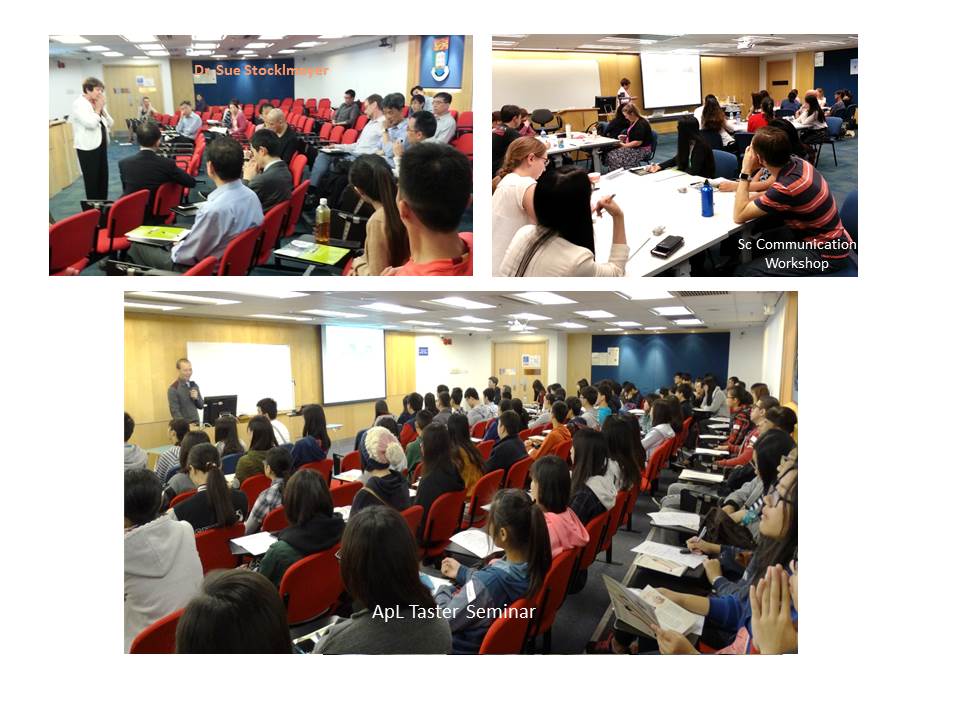
Engineering and Science General and Environmental Sciences

General & Environmental Sciences
The School provides a wide range of programmes in response to public interest, covering such topics as food safety, pesticide safety, science communication, landscape design and environmental improvement to promote quality of life. Courses are offered at varying levels to provide students with both sound fundamental knowledge and advanced teaching designed to develop professional competencies.
Additionally, in view of global urbanization and the increasing concern on promotion of green measures, programmes related to environmental studies are offered to students pursuing training in green management, sustainability and green building.

General and Environmental Sciences Programmes
- Sort by
- Programme Title
Bioinformatics is an interdisciplinary field of biology and computational science. It uses computer programmes to compare and analyse the sequences of biological molecules, which usually refers to DNA, RNA, or protein. Bioinformatics aims to determine gene and protein functions, reveal evolutionary relationships, predict 3-D structure of proteins, and most importantly to identify the genetic cause of diseases. After completion of this programme, students can pursue further studies in bioinformatics and precision medicine at Master level.
The programme aims to provide students with the knowledge of genetics and genomic technologies; the operational skills of Windows and Linux computing environment; and the fundamental programming skills for the analysis of biological and clinical data. It also covers the applications of the software, database, and scripts to identify the genetic cause of diseases.

2025-26 (Year 2): HK$93,000 (2 instalments and is subject to review)
- gain an in-depth understanding of the climate change challenges and evaluate the impact of the climate crisis on society, corporate performance and the economy.
- understand key climate mitigation and adaptation options;
- enhance personal effectiveness on making a difference on climate change in personal life and in the local community;
- gain an in-depth understanding on the policy options available for Hong Kong.
On completion of the programme, students should be able to:
- evaluate the impact of the climate crisis on society, corporate’s performance and the economy;
- identify the key international agreements driving sustainability issues;
- evaluate the actions taken by the corporates and financial sectors on climate change;
- present the options on energy generation and energy efficiency;
- apply policy and technical options for climate action on buildings, transport, waste and production;
- explain the principles of carbon measurement, management and standards that are essential for effective corporate climate action.







